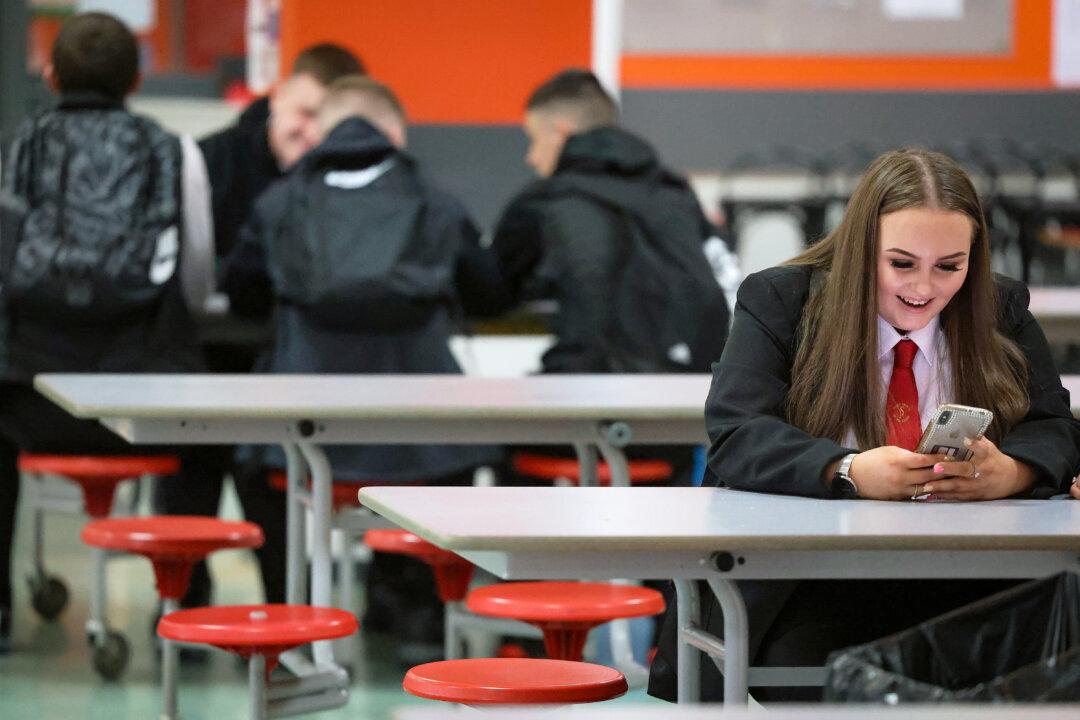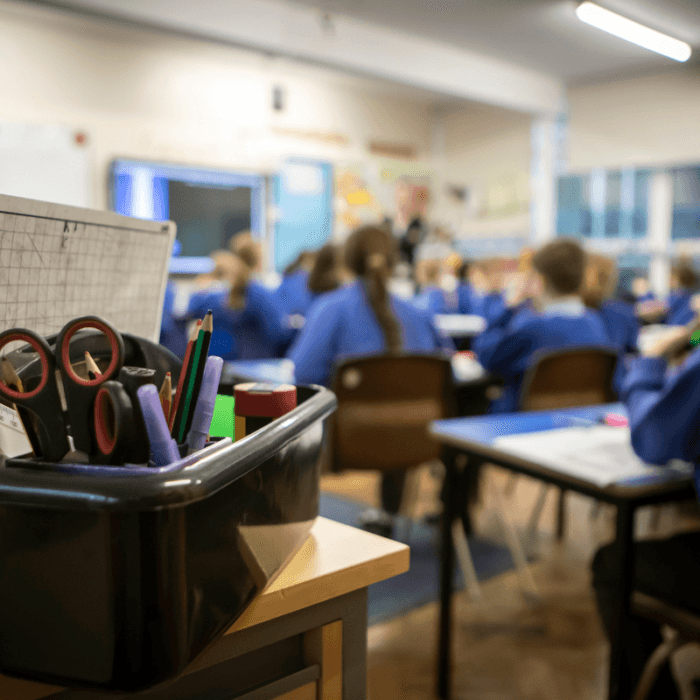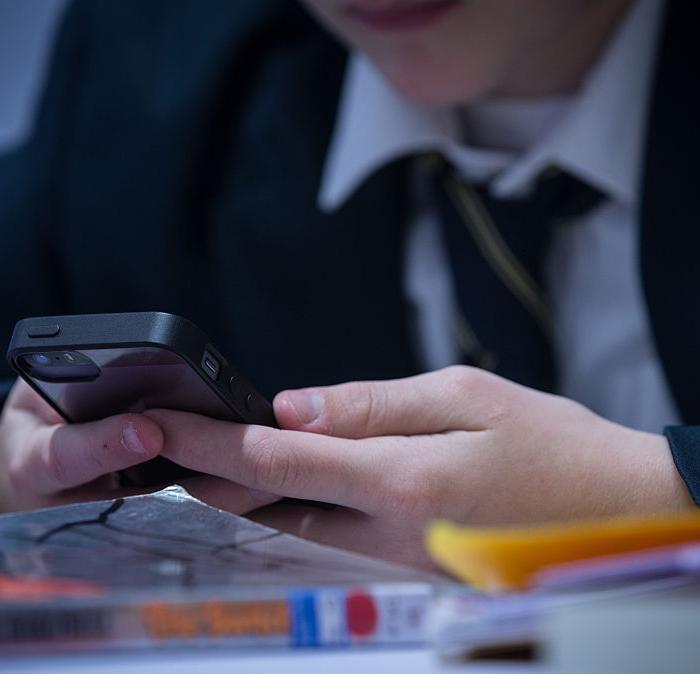Children at schools with an effective mobile phone ban are more likely to have better GCSE results than in schools with looser policies, a think tank has reported.
The findings are based on 800 Freedom of Information requests sent to primary and secondary schools across the UK.
The investigation found that most primary schools—84 percent—had an effective ban on smartphones. In secondary schools, that number was down to 11 percent, with just over a half practising a type of ban in which phones are still allowed in students’ bags.
A partial ban—where phones are banned in some places but allowed in others, like at break and lunch—was being implemented in 36 percent of the cases.
Policy Exchange also noted that better GSCE results in schools with an effective ban were achieved despite the proportion of pupils eligible for free school meals in those schools.
“Nationally, a higher proportion of pupils eligible for Free School Meals is correlated with lower Progress 8 and worse Ofsted ratings – making it even more impressive that schools with an ‘Effective ban’ buck this trend,” the report said.
Responses
The current government guidance on mobile phone use in schools is non-statutory. Published in February, it is part of the government’s plan to minimise disruption and improve behaviour in classrooms.“Government should carefully monitor whether or not schools are implementing effective bans on phones and, if the situation does not improve within a year, make the current guidance statutory and binding,” the Policy Exchange report said.
The think tank also called on Ofsted to include evidence on mobile phones into its inspection framework.
“The data collected in this report delivers a stark message to policymakers: mobile phones disrupt education and worsen educational outcomes,” said Dame Caroline Dinenage, who chairs the Culture, Media and Sport Select Committee.
Responding to the findings, former education minister Tim Loughton noted the impact of mobile phones on early years education.
“Not to have the latest smart phone is almost seen as a form of deprivation and some young people are almost surgically attached to them and it has taken over as the main form of communication and leisure so that people do not actually talk properly to their peers anymore and physical activity – which is not battery powered – is increasingly shunned.
“The distraction that this provides to children at the most developmental and crucial stage in their lives has become a great concern. Nowhere more so than the impact it has in schools and on young people’s ability to learn and socialise with other real human beings,” Mr. Loughton said in the report.
Pepe Di’Iasio, general secretary of the Association of School and College Leaders, has argued that use of mobile phones outside schools is where better regulation is needed.
“Calling for a ban on mobile phones in schools is treading old ground. Schools already have robust policies in place regarding smartphones—either banning their use entirely during the school day or allowing their use only at limited times and strictly controlled circumstances.
“The problem with smartphones relates largely to their use outside school and this is where issues such as cyberbullying and accessing inappropriate content tend to happen,” he said.
Mr. Di’Iasio said that online platforms should be better regulated, while mental health support for young people should be improved.
“What we don’t need is more reports about banning phones in schools,” he added.
A poll of parents by charity Parentkind has found that the majority of respondents would like to see a government ban on smartphones for children under 16.
While a majority backed the ban, the poll revealed a contrast in support between parents of primary and secondary school-aged children. More than three in four parents of younger children backed the ban, compared to only 16 percent of parents of older children.







